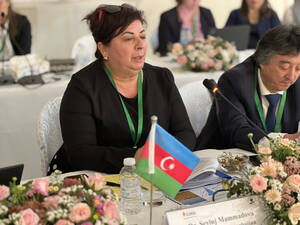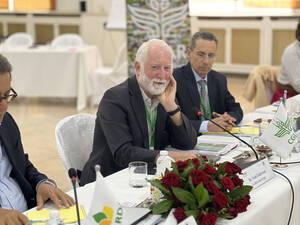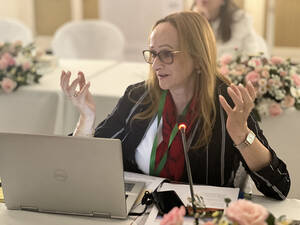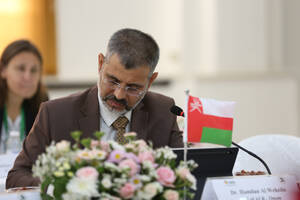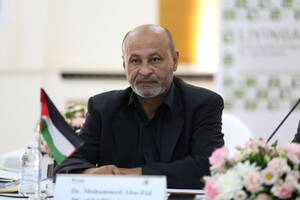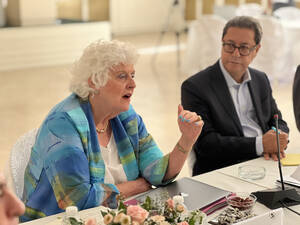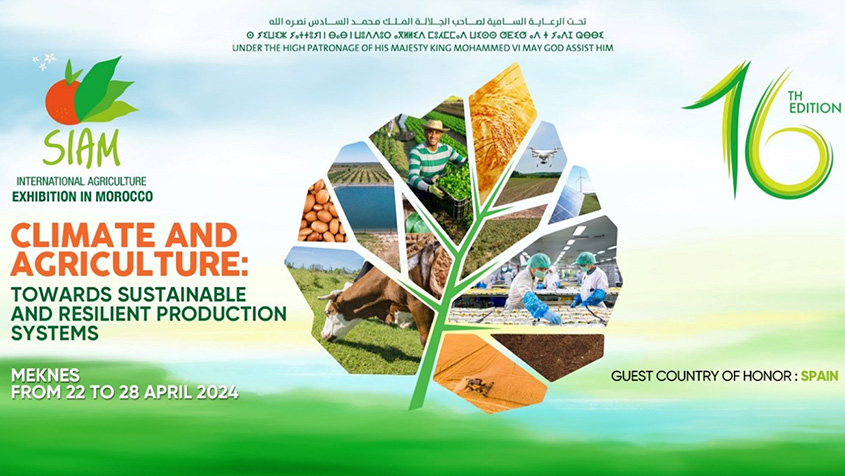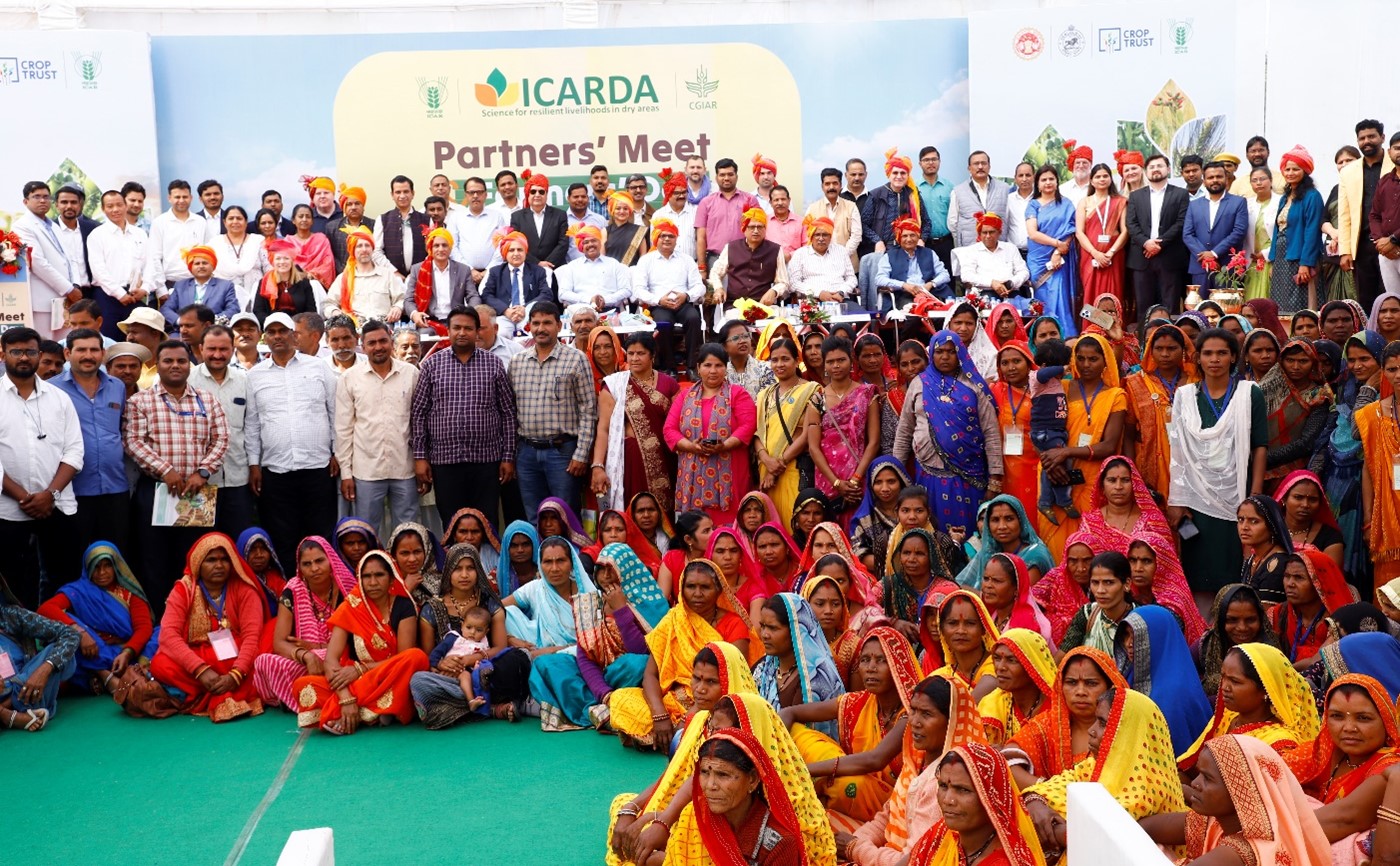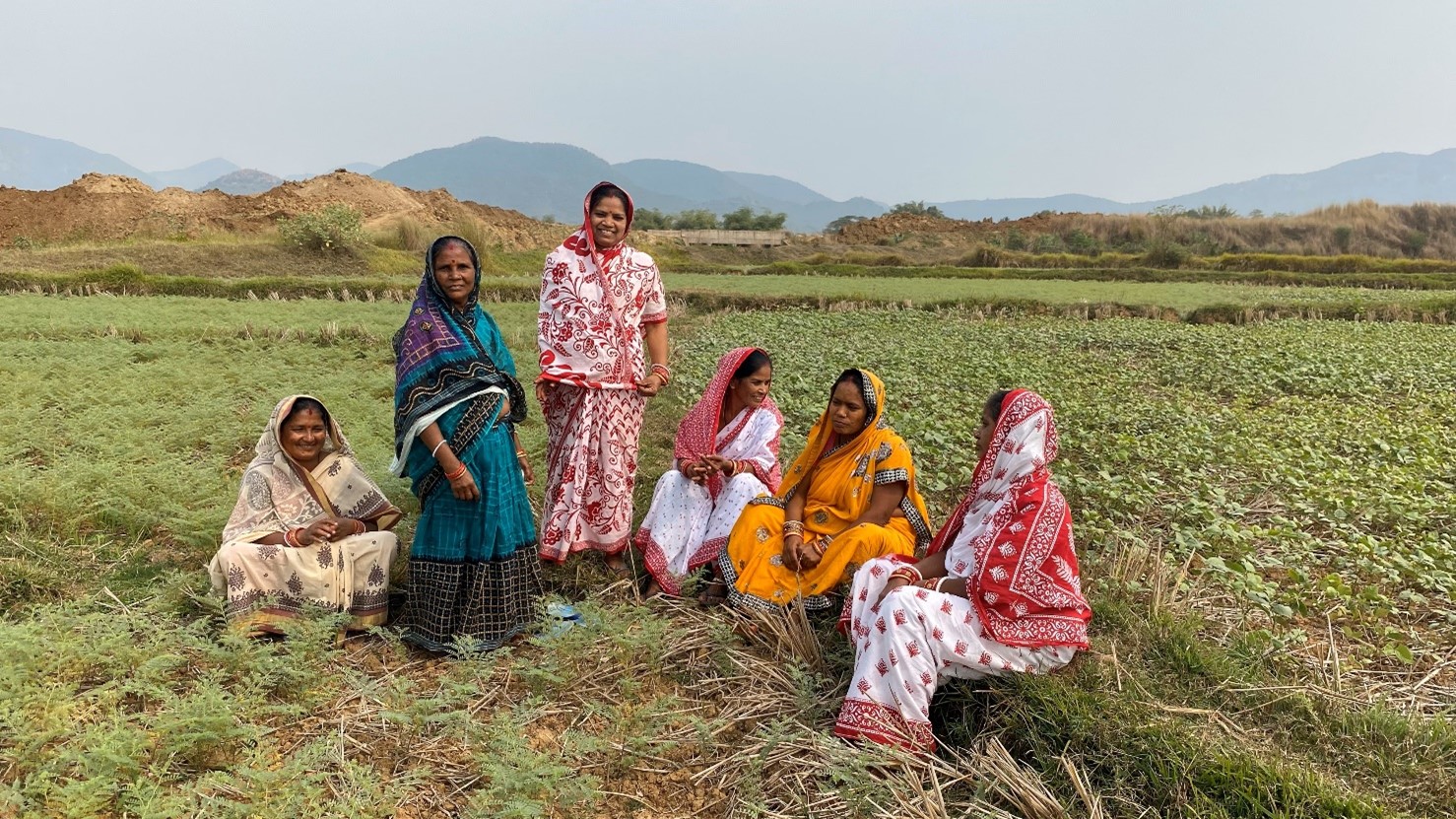ICARDA's ongoing 2030 Strategic Plan Review - In Lebanon with National Partners and the ICARDA Board
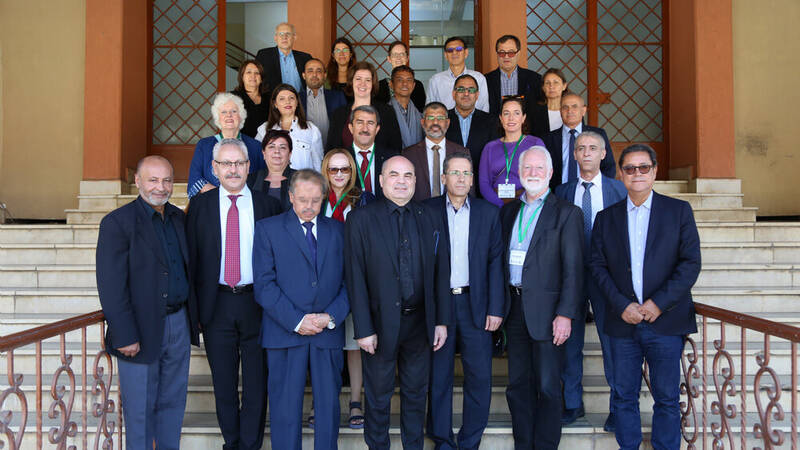
The forthcoming launch of the updated ICARDA 2030 Research and Innovation Strategy (R&I Strategy) is fast approaching, scheduled for early next year. After progressing through multiple partner-led phases, we extended a warm invitation to the leaders of regional National Agricultural Research (NARS) programs and the ICARDA Board of Trustees to engage in the next participatory stage. They convened at the LARI research station in Lebanon to provide invaluable guidance during the latest review of our R&I Strategy.
Amidst the intensifying challenges posed by climate change, dryland agriculture faces escalating hardships, including issues such as water scarcity, land degradation, and increasing crop pests and diseases. When these challenges converge, they can give rise to chronic poverty, food insecurity, climate-induced migration, and conflict, particularly in the arid, water-stressed regions of Central and West Asia, North Africa, and the Middle East (CWANA).
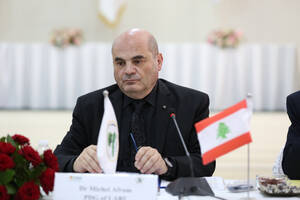
"I welcome esteemed colleagues & science leaders from regional NARS and ICARDA as informed voices vital to develop a strategic plan that can truly address dryland challenges under climate change." – Dr Michel Afram, Director General of Lebanese Agricultural Research Institute (LARI)
In response to the unprecedented speed of climate change, ICARDA and its partners have developed a cutting-edge strategy draft. This is built upon revised Strategic Research Priorities, Cross-Cutting Research Themes, and Modes of Operation. Each of these distinct elements delineates the methodology by which ICARDA will execute its mission in collaboration with sister CGIAR Centers, crucial partners like NARs, and other stakeholders.
On day one, the ICARDA strategy review team presented an overview of the strategy process, and the meeting was then structured as a series of facilitated discussions based on different aspects of the current ICARDA 2030 R&I Strategy draft. Some of the key points that were stressed in the opening presentation were:
- The process of developing ICARDA’s 2030 R&I Strategy was driven by staff and partners (CGIAR and NARs) defining the challenges and needs in the global drylands and considering how ICARDA can leverage its skills and expertise towards climate-smart food systems transformation
-
Thus far, feedback from staff and partners indicates that ICARDA's 2030 R&I Strategy is aligning well with NARs partner priorities. Presentations have synthesized this invaluable partner feedback, which will be integrated into the strategy to bolster its robustness.
-
The new strategy retains the core strengths of ICARDA while pushing the organization to embrace greater ambition. This drive is essential to make a more substantial impact in the face of mounting challenges affecting agrifood systems in drylands, primarily attributed to the forces of climate change.
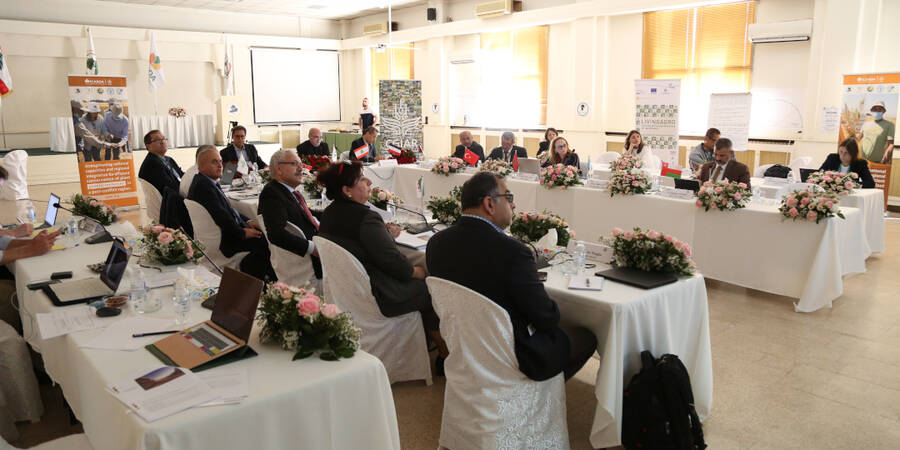
The workshop aimed to achieve several key objectives. These included a comprehensive review and refinement of the existing draft of the strategic plan, all while fostering consensus regarding the 2030 objectives and a shared vision of what success entails. In addition, through engaging discussions with the Board of Trustees, the workshop sought to harmonize actions and plans with the CGIAR 2030 Research and Innovation Strategy, as well as the overarching principles of the One CGIAR vision.
“With all our knowledge, assets, facilities, and innovation, we can create a great body of research and data that can benefit global agriculture in the face of climate change - Dr. Sevinj Mammadova DG of ARICH- Azerbaijan
Aligned with the CGIAR 2030 Research and Innovation Strategy, and building on its previous 2017-2026 strategy, the updated ICARDA Strategic Plan continues with the development of climate-smart technologies such as protecting plant biodiversity, resilient crops and livestock, and improving water and soil management.
The strategy also places a significant emphasis on observing the long-term consequences of climate change on crop and livestock production systems. It also underscores the exploration of more effective applications of AI and machine learning in agricultural research. Furthermore, the strategy promotes a more in-depth examination of how to seamlessly incorporate social policy, capacity building, and improved market access into the research efforts, all geared towards achieving equitable and economically viable outcomes within farming systems.
"I invite open critique from all voices because to improve and develop, we need to be honest and realistic about the challenges and how we can address them." -Neal Gutterson, Chair of ICARDA's Board of Trustees
“ICARDA is a science partner, but it is up to us as NARS to inform the Strategic Plan to make sure it addresses the needs of our countries and the region as a whole.” - Dr. Imane Thami Alami, INRA-Morocco
The meeting discussions on the ICARDA 2030 R&I Strategy were frank and productive. They highlighted that the strategy is moving in the right direction, that it fits well with what is expected by NARs partners, and aligns with their priorities. But the strategy also requires more work to improve its structure and to ensure that it is communicating ICARDA’s unique value-add in a more effective way.
“It's important we speak honestly and strategically about our own abilities, and to take into account both successes and failures of all our work to make sure we learn and progress. " - Hamdan Alweheibi Director General, MAFWR- Oman
The discussions during the meeting were characterized by candid and fruitful exchanges. They underscored that the strategy is making positive strides and aligning well with the expectations of NARs partners, in harmony with their priorities. However, there is a recognized need for further refinement to enhance its structure and to better articulate ICARDA's distinctive value proposition for more effective communication.
“This is not just an ICARDA/NARS strategy. It can act as a driver for agri-change across the entire region,” said Dr. Mohammed Abu-Eid, DG of NARC, Palestine
"Results-based monitoring through goals and measured KPIs is a key part of this strategy in order to identify actual progress, avoid stagnation, and make sure we deliver what the countries need." – Hilary Wild, ICARDA BOT Member, CGIAR AFRC Focal Point
Among insights shared during the discussion, one highlighted the importance of ensuring that ICARDA's innovations are both cost-effective and competitive in the commercial market, a crucial factor for their adoption within the agricultural sector. This necessitates forging closer partnerships with the private sector.
Another point emphasized ICARDA's pivotal role in crafting a strategy that not only caters to individual country needs but also actively fosters knowledge and asset sharing to a braoder base, ultimately benefiting the region as a whole. This mirrors ICARDA's current involvement in the Integrated Desert Farming Innovation Hub, where such collaboration is already in action.
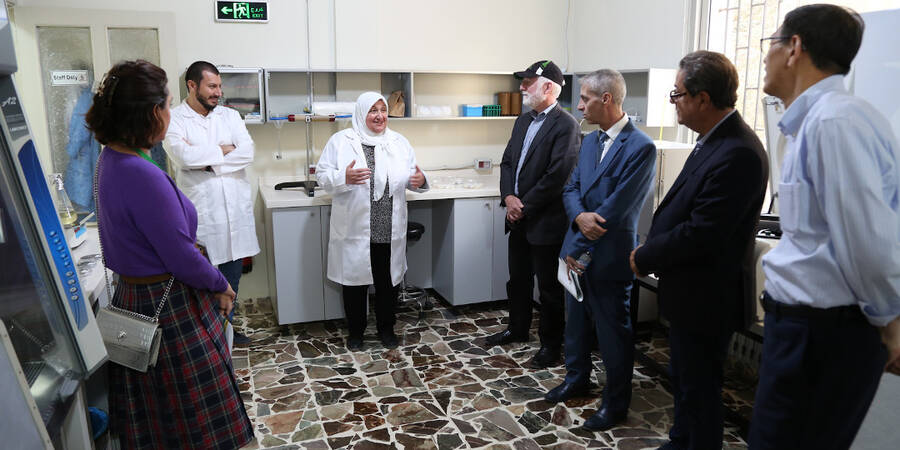
Snapshot of outcomes and next steps.
- ICARDA’s role is as a convenor – bringing together partners across the drylands to collaborate more strongly, share knowledge, technologies, and innovations across the region, and reduce overlaps and duplication.
- The strategy should constantly review the ongoing and escalating challenges in food insecurity
- The fundamental challenge of water scarcity in the drylands is a high strategic priority
- Major stakeholder groups, including the private sector, are the pathway to inform the strategy.
- Products should be relevant and competitive with current available commercial technology.
- Critical assessment of past successes and failures should be included to build an effective strategy
- Results-based management will guide the strategy’s implementation
From here, The Board will next review the strategy at the end of 2023
------------------------------------------------------
Related Article: Refreshing ICARDA’s Strategic Plan for a Fast-Changing World | ICARDA

